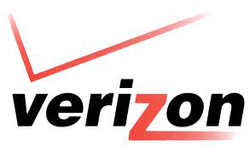The "Autorité de régulation des communications électroniques et des postes" - ARCEP (French telecommunications and postal regulator) required Internet operators to regularly provide information. AT & T and Verizon announced the June 21, 2012 that they challenged the decision of the regulator before the "Conseil d’Etat" (French Council of State).
http://www.thejournalofregulation.com/spip.php?article1513

The "Autorité de régulation des communications électroniques et des postes - ARCEP" (French telecommunications and postal regulator) required that all Internet operators, French or foreigners, from the moment that they operate on the French territory, to provide it, by return of questionnaire, a series of information, every 6 months, on their wholesale trafficking on the Internet, theirs tariff policies, their locations of interconnections, etc. AT & T and Verizon have said on June 21, 2012 that they challenged the decision before the "Conseil d’Etat" (French Council of State).
© thejournalofregulation
The "Autorité de régulation des communications électroniques et des postes - ARCEP" (French telecommunications and postal regulator) intends to be the regulator of the Internet. Some didn’t admit that the regulator for electronic communications would have this ambition, whether that they believe that Internet doesn’t have to be regulated or that they feel that this is not the " Autorité de régulation des communications électroniques et des postes - ARCEP" (French telecommunications and postal regulator) to do this.
The "Autorité de régulation des communications électroniques et des postes - ARCEP" ( French telecommunications and postal regulator), proceeding with determination and method, and successively accumulated studies, symposiums, publications and proposal, particularly on the neutrality of the net, through the center of the system.
Accordingly, and pursuant to a schema that this sectorial regulator has itself designed, it required by a recent decision that all operators of telecommunications on the Internet will now have to provide information by bi-annual way. This information is both on the traffic, its magnitude, the locations of the points of interconnections, wholesale rates charged, etc. In addition, not only information have a very large field, but still all Internet operators are targeted, including Google, since it is of any operator of the Internet, it’s a question of French law or not, as soon as it brings an action on the ground of French law.
As in a sort of permanent sectorial inquiry, the Regulator will send a questionnaire to all operators. They will have necessarily return, duly completed. This tends to show that the Regulator aims to find ways of measuring the share of value on Internet and its consideration on the neutrality of the Net. It is certain that a regulator enforcing a fair share of the value must have this information. But is that the texts allow it? Is it the regulator that has had to do this? Is that the principle of the neutrality of the Internet is acquired and has it developed a lot of consequences?
The power to eradicate information about wholesale market on the part of operators for that the infrastructure will be economically balanced, or even build by the regulator, is a fairly "colbertiste" conception of things. We move from one system of regulation to another system of supervision, as in finance. The change is qualifying. What is fully justify in finance, because there are systemic agents, but is it justified for the Net, under the pretext that it could be built only satisfactorily?
It will be interesting to see and in what sense the French State Council will apply the law and to what extent the judge may take a position, express or implied, on these basic issues of industrial policy. Here it’s easy to appreciate two prospects, and they are already present in the previous post published by the head for Europe to AT & T, and it’s in this way that we have to communicate now. On the ground of law, the Regulator may compel ex-ante operators to divest information, which weaken them, while the competition is great and that the market is dynamic and that does not justify that a corrective action or incentive action intervene?
Or is it enough that the regulator has the power to delegate by law to exercise a constraint, by the play of transposition of the texts of the European Union? We are back here in two very traditional view: either the design of the hierarchy of norms and powers, in which the Regulator can do only what the law delegated it but without having to justify the purpose and the need for the exercise of the power conferred; or either the view of a purposive right, in which if the purpose is not satisfied by the use which is made by the Regulator of its power, then this use became therefore illegitimate because it was not necessary. Clearly, the applicants adopted purposive design, whereas without the Regulator took the given authority by the text. Further, it defended more purposive view. AT & T and Verizon also point out that "to date, no European regulatory authority did state of a single breach on the market, or applied regulatory" activities. The "Autorité de régulation des communications électroniques et des postes"- ARCEP (French telecommunications and postal regulator), contacted by the" Agence France-Presse - AFP (French news agency), didn’t wish to comment. This collection "will allow to better understand relations of interconnection and routing of data (of these telecommunications operators) with the other actors in the internet", but also "to settle disputes", explained the the "Autorité de régulation des communications électroniques et des postes"- ARCEP (French telecommunications and postal regulator). The France is one of the first countries to have such a data collection tool, made possible by the transposition in French law a set of European measures codenamed "telecoms package".

your comment